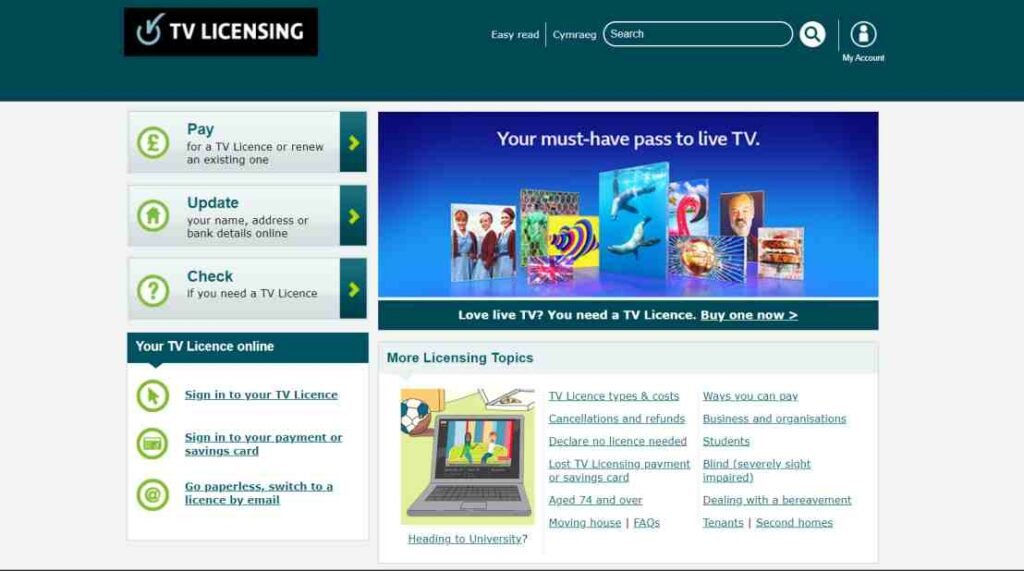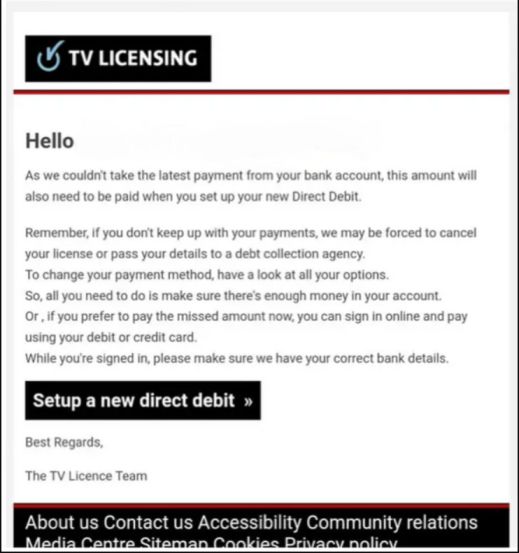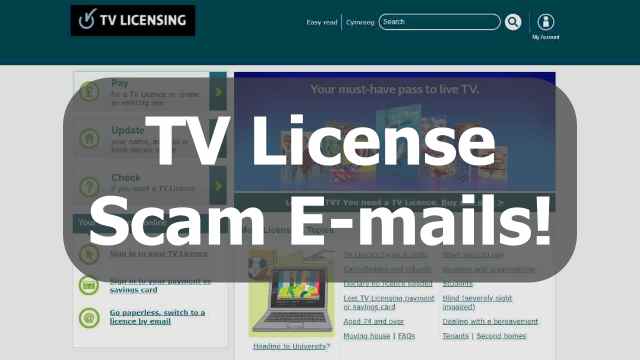Recently, there has been a new fraud going around the market pretending to be a TV license authority, especially in the UK. Emails to many TV license holders in the area are spreading the hoax.
This post will examine these fraudulent emails, explaining how to spot them and what to do if you encounter one.
What is a TV License?
In every household, a TV license is required to watch or record television. All owners of equipment that can receive radio or television transmissions must pay the licensing fee. Each nation charges TV licenses according to its own plan.

A recent email claiming to be from TV Licencing authorities and displaying a phony TV Licence authorities’ logo and name was received by several license holders in the United Kingdom. The email’s message stated that license holders had a payment that was due and that they needed to use the link that was included.
This is how the emails that folks have been receiving look:
Hello [your email address]. As we couldn’t take the latest payment from your bank account, this amount will also need to be paid when you set up your new Direct Debit. ‘Remember, if you don’t keep up with your payments, we may be forced to cancel your license or pass your details to a debt collection agency. To change your payment method, have a look at all your options. ‘So, all you need to do is make sure there’s enough money in your account. Or, if you prefer to pay the missed amount now, you can sign in online and pay using your debit or credit card. ‘While you’re signed in, please make sure we have your correct bank details.’ 'Setup a new direct debit.'
Read: $1 Temu Pallet Scam
TV Licenses Scam Email
People began to question these emails since they contained aspects of suspicion. Based on our in-depth investigation into these emails, we have concluded that they are scammers attempting to defraud you of your money by pretending to be TV licensing authorities.

The links the scammers include in their emails are not connected to TV license authority but rather are designed to give the impression that the recipient is visiting an official website to pay their dues or any other sum. Scammers frequently construct links using slightly modified domains.
Up until recently, these scams have cost a lot of individuals a great deal of money. However, there are a few methods you may spot these frauds and protect your money.
One is to always double-check the sender’s email address since they frequently alter it from the original. Furthermore, there are numerous serious grammatical errors in the emails.
Additional warning signs to spot these scam emails include the fact that they frequently incite readers’ feelings of urgency and pressure them to respond quickly—something that no legitimate organization would do. As a result, you should delete any email with any of these warning signs and refrain from clicking on any links inside it.
